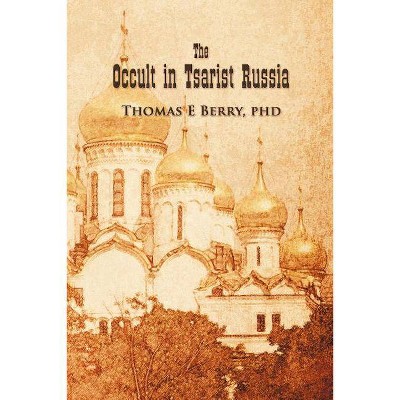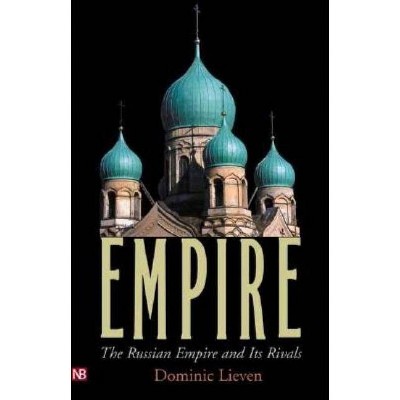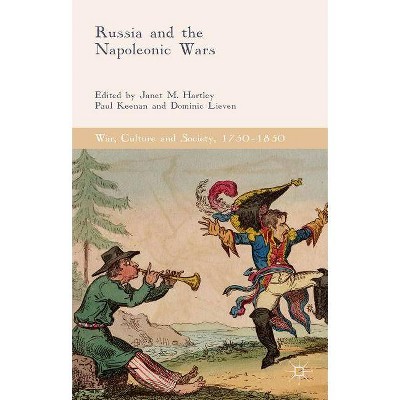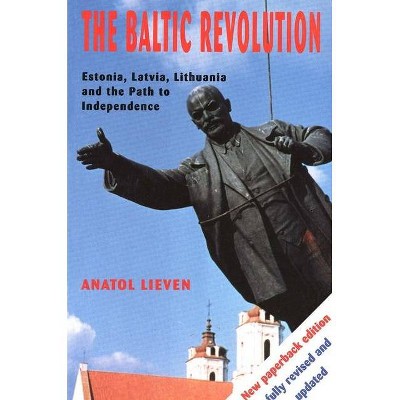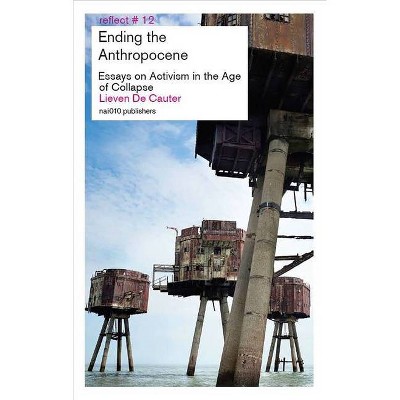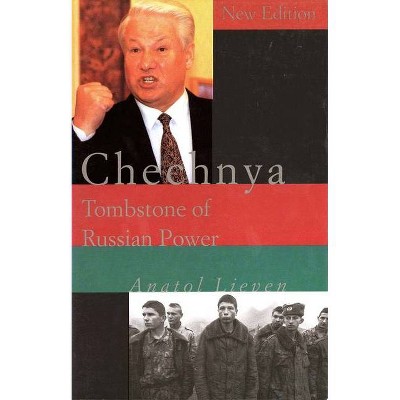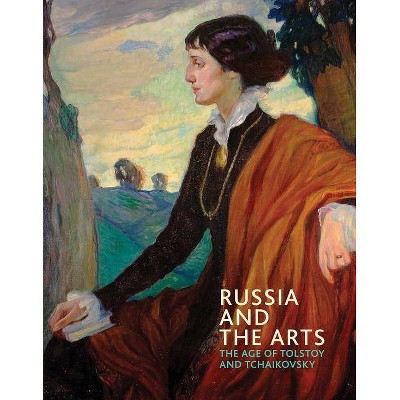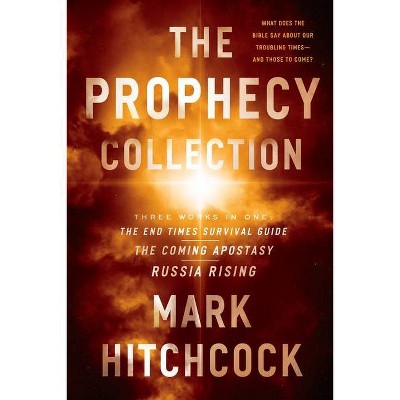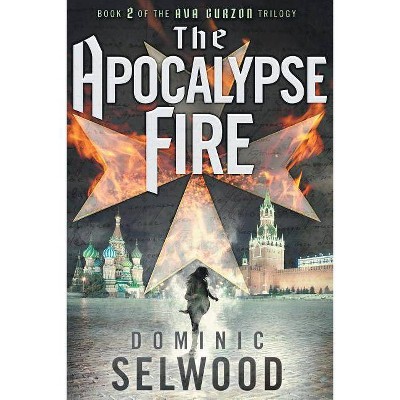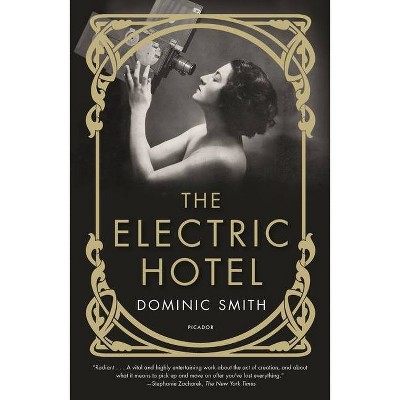The End of Tsarist Russia - by Dominic Lieven (Paperback)
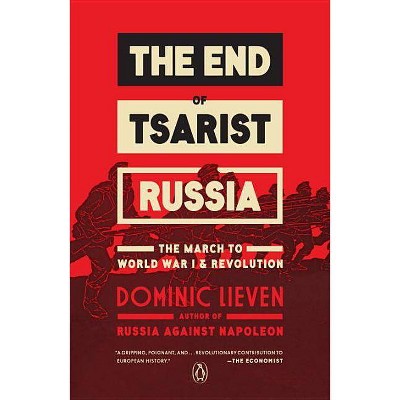
Similar Products
Products of same category from the store
AllProduct info
<p/><br></br><p><b> Book Synopsis </b></p></br></br><b><b><b><b><b>An </b></b><i><b><b><i>Economist </i></b></b></i><b><b>Best Book of the Year</b></b><i><b><b><br></b></b></i><b><b>A</b></b><i><b><b> <i>Financial Times</i> </b></b></i><b><b>Best Book of the Year</b></b><i><b><b><br></b></b></i><b><b>Winner of the the Pushkin House Russian Book Prize<br>Finalist for the Lionel Gelber Prize<br>An Amazon Best Book of the Month (History)</b></b><br></b><br>One of the world's leading scholars offers a fresh interpretation of the linked origins of World War I and the Russian Revolution</b> <p/>Lieven has a double gift: first, for harvesting details to convey the essence of an era and, second, for finding new, startling, and clarifying elements in familiar stories. This is history with a heartbeat, and it could not be more engrossing.--<i><b>Foreign Affairs <p/></b></i></b><br>World War I and the Russian Revolution together shaped the twentieth century in profound ways. In <i>The End of Tsarist Russia, </i> acclaimed scholar Dominic Lieven connects for the first time the two events, providing both a history of the First World War's origins from a Russian perspective and an international history of why the revolution happened. <p/>Based on exhaustive work in seven Russian archives as well as many non-Russian sources, Dominic Lieven's work is about far more than just Russia. By placing the crisis of empire at its core, Lieven links World War I to the sweep of twentieth-century global history. He shows how contemporary hot issues such as the struggle for Ukraine were already crucial elements in the run-up to 1914. <p/>By incorporating into his book new approaches and comparisons, Lieven tells the story of war and revolution in a way that is truly original and thought-provoking.<p/><br></br><p><b> Review Quotes </b></p></br></br><br>[Lieven's] intimate familiarity with the Russia he describes and his extensive study of the letters, diaries and books of the chief actors in Russia's descent 'towards the flames'--many not hitherto accessible to historians--are what render this work so authoritative and readable."--<b><i>The New York Times</i></b> <p/>"Lieven presents Russia's road to war and revolution as a classical tragedy--a fate driven by the character of both the country and its rulers . . . [he] recovers a world that has been lost."--<b><i>The Wall Street Journal</i></b> <p/>Lieven resoundingly impresses, not the least when he goes out on a limb with many fresh and original claims... It is not often that a work of outstanding scholarship is also a gripping read. That, however, is precisely what Lieven has delivered."--<b><i>Minneapolis Star-Tribune</i></b> <p/> "[T]he notion that Russia, lying at the periphery of Europe, was as the center of things infuses Dominic Lieven's masterly new view of World War I."--<b><i>Boston Globe</i></b> <p/>So valuable because it gives insight into why Russia was so unprepared for a war that ultimately resulted in a near-century of agony for its people.--<b><i>Washington Post</i></b> <p/>Lieven's interpretation is the result of his own heroic research endeavours in newly available Russian foreign ministry archives. But his insights are more than professional; they are personal.... His stimulating book, deeply researched yet written with all the bravura of his aristocratic forebears, convinced this reviewer at least.--<i><b>Financial Times</b></i> <p/>A gripping, poignant and in some respects revolutionary contribution to European history.--<i><b>The Economist </b></i> <p/>Not just one of the greatest historians on Russia, but also a great writer.--<b>Antony Beevor, <i>Independent </i>(UK)<br></b><br>"<i>The End of Tsarist Russia </i>is a book of immense scholarship and engaging readability. Through an eastern window rarely opened to Western gaze, it illuminates the end of Europe's old order and the explosive start of the twentieth century. A century later, we are still struggling with this era's epic legacies."<b>--David Reynolds, author of <i>The Long Shadow: The Great War and the Twentieth Century</i></b> <p/> "This is a great book by a great historian filled with riches--not just about the end of Tsarism and the Revolution, but offering the most original of all recent account of the outbreak of war in 1914. It has uncanny internal knowledge of the state apparatus, terrific explanatory power and judgment--and such narrative power that I found it hard to put down."<b>--John A Hall, Professor of Comparative Historical Sociology, McGill University</b> <p/> "Readers who, after two years of vigorous debate among historians, are looking for a judicious assessment will find this book absorbing as well as indispensable in their teaching and research."<b>--V.R. Berghahn, Columbia University<br></b><br> "Lieven's insight into the mentalities of early twentieth century Russian statesmen is unrivalled. As a result, he presents the fullest and most nuanced picture we have of Russia's halting but in the end determined entry into the First World War. This book supersedes all previous ones on the subject."<b>--Geoffrey Hosking, Emeritus Professor of Russian History, University College London</b><br><p/><br></br><p><b> About the Author </b></p></br></br><b>Dominic Lieven</b> is a senior research fellow at Trinity College, Cambridge, and a fellow of the British Academy. He previously taught Russian Studies at the London School of Economics for thirty-three years. His last book, <i> Russia Against Napoleon, </i> won the 2009 Wolfson Prize for History and the Prix Napoleon.
Price History
Price Archive shows prices from various stores, lets you see history and find the cheapest. There is no actual sale on the website. For all support, inquiry and suggestion messages communication@pricearchive.us
